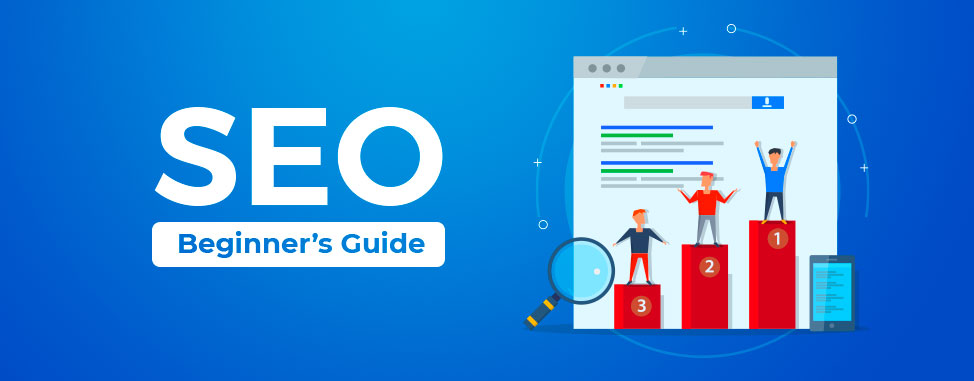The Beginner's Guide to SEO 2023
SEO can be a complex and time-consuming process, but it's essential for improving your website's visibility and attracting more organic traffic.
Search Engine Optimization, or SEO, is a vital tool for anyone looking to improve their website’s visibility and attract more organic traffic. In this beginner’s guide, we’ll cover the basics of SEO, including what it is, how it works, and the different factors that affect it.

What is SEO?
SEO is the process of optimizing a website to improve its visibility and rank higher in search engine results pages (SERPs). The goal of SEO is to attract more organic traffic to a website by making it more visible and accessible to search engines like Google.
SEO is a complex and ever-changing field, with new trends and techniques emerging all the time. But at its core, SEO is about understanding what search engines are looking for and using that knowledge to optimize your website accordingly.
How Does SEO Work?
To understand how SEO works, it’s helpful to know a little bit about how search engines work. When you perform a search on Google or another search engine, the search engine uses a complex algorithm to determine which results to show you.
This algorithm takes into account a wide range of factors, including the content of each website, the authority of the website (how trusted it is), the relevance of the content to the search query, and many other factors.
SEO is all about understanding these factors and optimizing your website to meet them. For example, if you want your website to rank higher in search results for a particular keyword, you might need to optimize your content to include that keyword in the right places, build high-quality backlinks to your website, and improve the overall user experience of your website.
The Factors That Affect SEO
There are many factors that can affect your website’s SEO, but here are some of the most important ones to keep in mind:
Content: One of the most important factors in SEO is the quality of your content. Your content should be high-quality, relevant, and engaging for your audience. It’s also important to include keywords in your content that are relevant to your website and the search queries you want to rank for.
Backlinks: Backlinks are links from other websites that point to your website. They’re an important signal to search engines that your website is trustworthy and authoritative. Building high-quality backlinks is essential for improving your website’s SEO.
User Experience: User experience is an important factor in SEO. Your website should be easy to navigate, load quickly, and be optimized for mobile devices. Providing a good user experience will not only improve your SEO, but it will also help you retain visitors and improve your conversion rates.
On-Page Optimization: On-page optimization refers to the various techniques you can use to optimize your website’s content and HTML code. This includes things like optimizing your title tags and meta descriptions, using header tags correctly, and ensuring that your website is using HTTPS.
Technical SEO: Technical SEO refers to the behind-the-scenes aspects of SEO, such as website speed, site structure, and mobile-friendliness. Ensuring that your website is technically sound is essential for improving your SEO.
Getting Started with SEO
If you’re just getting started with SEO, there are a few things you can do to start optimizing your website:
-
Do Keyword Research: Keyword research is the process of identifying the keywords that your target audience is using to find information related to your website. Use tools like Google’s Keyword Planner to identify relevant keywords and incorporate them into your content.
-
Optimize Your Content: Use your target keywords strategically in your content, but be sure not to overdo it. Your content should be high-quality and engaging, and you should focus on providing value to your audience.
-
Build High-Quality Backlinks: Focus on building high-quality backlinks to your website from other trustworthy and authoritative websites.
-
Improve User Experience: Make sure your website is easy to navigate, loads quickly, and is optimized for mobile devices. A good user experience will help keep visitors on your website and improve your SEO.
-
Monitor Your Results: Use tools like Google Analytics to monitor your website’s performance and track your progress over time. This will help you identify areas where you need to improve and adjust your SEO strategy accordingly.
-
Stay Up-to-Date: SEO is constantly evolving, so it’s important to stay up-to-date with the latest trends and techniques. Follow industry experts and blogs, attend webinars and conferences, and keep learning.
SEO can be a complex and time-consuming process, but it’s essential for improving your website’s visibility and attracting more organic traffic. By understanding the basic principles of SEO and implementing the right strategies, you can improve your website’s search engine rankings and achieve your online goals.